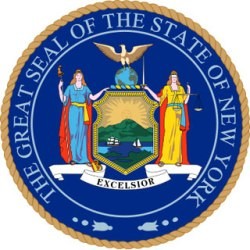A Closer Look At New York’s Gaming Industry

New York has long been open to the idea of legalized gambling, and late last year its Gaming Commission issued licenses to open three new land-based casinos that are not operated by tribal groups within its borders. The proposed location of these venues include the Montreign Resort Casino in the Catskills, Lago Casino in the Finger Lakes, the Rivers Casino in Schenectady, with a fourth in the Southern Tier area also planned.
Furthermore, there is movement afoot amongst New York lawmakers in Albany to legalize and regulate online poker, although recently efforts have stalled on account of the surge in interest currently surrounding the daily fantasy sports industry. As New York State Assemblyman Gary Pretlow commented at the iGaming North America 2016 conference earlier this month:
“As far as online poker is going, we’re moving ahead very slowly and cautiously.. With DFS.. I’ve been in constant contact with FanDuel and DraftKings and we’re in the process now of proposing legislation to legalize them. I’m halfway through looking at the various proposals in other states to see how they did it.”
Still, the introduction of legal online gambling in the Empire State could be a ways away, as there are many entities and groups within New York who have a say on the matter, and have varying opinions on whether or not legalization is the right move for the state. Here is a look at each of them:
New York State Lottery
New York’s profitable state lottery is in charge of monitoring and controlling video lottery machines located throughout New York. The lottery contributes a large amount of income to the state’s budget every year.
New York State Gambling Commission
The New York State Gambling Commission is responsible for overseeing all types of legal gambling outside of the video lottery machines, including Indian gaming, the state lottery, horse racing and privately owned casinos.
Seneca Nation
The Seneca Nation runs three casinos in New York: Buffalo’s Seneca Buffalo Creek, Salamanca’s Seneca Allegheny and Niagara Falls’ Seneca Niagara. Industry insiders believe that the Seneca Nation could benefit from legalized online poker, as their casinos have large poker rooms.
New York Gaming Association
The New York Gaming Association is responsible for lobbying the New York government on behalf of certain members of the racino industry. They are typically allowed to provide input on all types of gaming regulations.
Genting Group
This corporation owns the Resorts World Casino New York, which is the only casino located in New York City. They also have control over Empire Resorts, which owns the Monticello Casino and Raceway and is in the process of building a $1.3 billion resort and casino. This gives Genting a powerful voice and a vested interest in shaping gambling legislation.
Oneida Nation
The Oneida Nation runs the oldest casino in New York, the Turning Stone, which opened its doors in Verona in 1993. Although the property is the only one that the Oneida own in New York, the tribe is still very influential.
Rush Street Gaming
This private company operates two of the largest casinos in neighboring Pennsylvania and is currently working to secure a license to build their first resort in New York, the Rivers Casino Schenectady.
Boyd Gaming & Wilmorite
Boyd Gaming is another private company that is a newcomer to the New York gambling scene. The company owns part of the del Lago Resort and Casino, which is being built in New York’s Seneca County. The company is partnering with Wilmorite, an operator with casino properties in California and Oklahoma.
New York Racing Association
Responsible for overseeing several race tracks is the New York Racing Association. The famous Belmont Stakes are held every year at the association’s Belmont track.
MGM Resorts
While MGM Resorts does not own or operate any casinos in New York, or have any projects in the works in the state, the company has sent representatives to testify against online poker legalization in Albany.
Conclusion
The online poker industry boomed in the US, but was unfortunately decimated by the UIGEA of 2006, followed by the Black-Friday closures in 2011. Furthermore, since state-by-state legislation was permitted in 2013, just three states have adopted regulation, and initial predictions of up to 15 states legalizing online poker in the first five years post-regulation now look far beyond optimistic. If New York does decide to go ahead with online poker regulation, though, it is unlikely to pool its players with those of other states, and as NY State Assemblyman Gary Pretlow explained recently:
“I have never been a fan of pooling… I think this should generally stay within each individual state, because we all have different rules on how we operate. Like I said, New York’s legal age is 21, and our neighboring state New Jersey’s age is 18. Then we can’t really have a pool because the 18 year olds will be in the New York pool, which would be problematic.”









